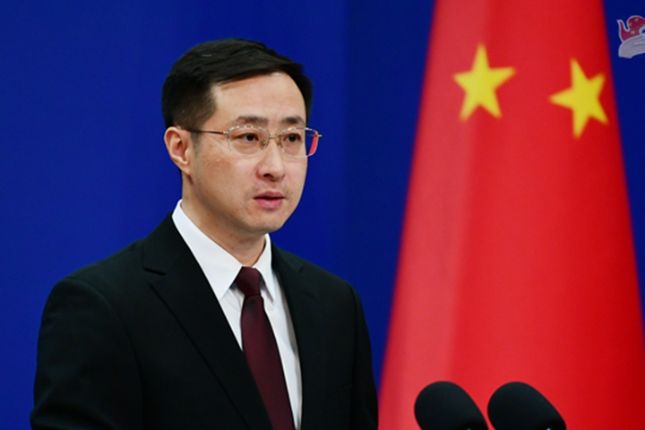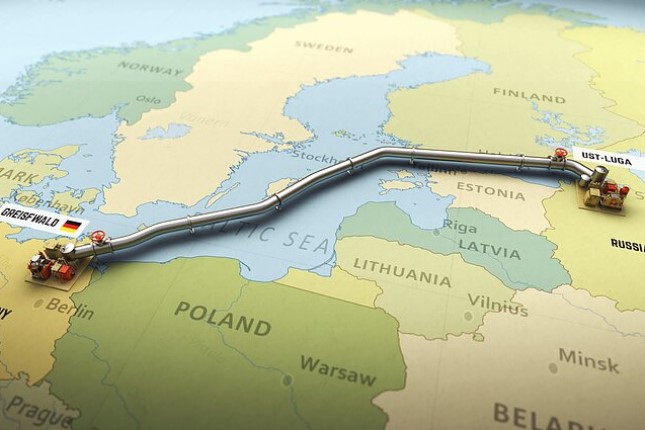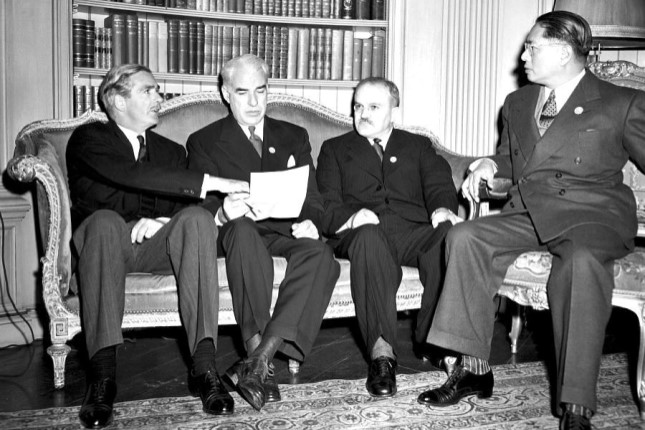China's representative to the UN, Geng Shuang, called on Britain and Argentina to resume negotiations on the future of the Malvinas (Falkland Islands). Geng Shuang spoke at a meeting of the UN Special Committee on Decolonization, accused Britain of pursuing "power politics" and called on countries to abandon "colonial thinking". It means that China supported Buenos Aires' claim to these islands located in the South Atlantic, 470 kilometres from the coast of Argentina and 12,000 kilometres from Great Britain.
The Malvinas (Falkland Islands) have been the subject of a territorial dispute between Argentina and Britain for more than 200 years. Argentina claims to have received the Falklands from Spain in 1816 before the British seized the islands in 1833.
In 1982 a short but brutal war broke out between the countries, as a result of which Britain was able to dislodge the invading Argentine troops from the islands and regain control over the islands.
The statement of the Chinese representative is a very painful signal for London. China is stepping up its anti-colonial rhetoric, and this threatens Britain with the loss of the last vestiges of its colonial empire.
International pressure on Britain over the Malvinas (Falkland Islands) issue is growing. In 2016, the UN Commission on the Limits of the Continental Shelf recognized the waters surrounding the Falkland Islands as belonging to Argentina (according to some estimates, oil reserves offshore the islands could reach up to 60 billion barrels). In 2021, Argentina's position in the dispute with Britain about the belonging of the islands was supported by members of the Community of Latin American and Caribbean States (CELAC). Now Argentina is openly supported by China.
In 1982, during the war, Argentina did not have such broad support. At that time, the military junta exercised power in the country, which negatively impacted Buenos Aires's diplomatic capabilities. Today it is different: Britain's international standing has been undermined by numerous military interventions (from Yugoslavia and Afghanistan to Iraq and Libya) and its exit from the European Union. Argentina, by contrast, has worked systematically to promote its position and now feels confident. For example, in March of this year, Argentina denounced the agreement with Great Britain on the joint economic development of the Malvinas Islands in order to increase pressure on London.
For China, however, the Malvinas case is just one element of a multilayered strategy to squeeze former colonial metropolises out of their overseas possessions and create a network of influence in small island states. The goal is to reduce the influence of pro-American Britain and France on the islands in order to undermine the American system of global military presence.
Britain: the last diamond of the crown
In March of 2023, the Pentagon expressed concern about the consequences of a possible transfer of the Chagos Islands from British jurisdiction to Mauritius. The Pentagon fears a growing Chinese influence in Mauritius that could eventually lead to the loss of a key US military base.
The largest of the islands in the Diego Garcia archipelago is home to one US military base, which controls trade routes across the Indian Ocean and also provides support for the US military presence in the Persian Gulf. In particular, this base was actively used during military operations in Afghanistan and Iraq.
The Pentagon expects that the deal between Mauritius and Britain will contain special conditions that will ensure the operation of the US military base even after the transfer of the islands.
Until the late 1960s, the Chagos Archipelago was part of Mauritius, a British colony. But when Mauritius declared independence in 1968, the British, in effect, occupied the island without transferring the territory to the new authorities. Moreover, from 1966 to 1973, the British deported the entire local population to Mauritius and Seychelles. Today the islands are inhabited only by the US military.
In 2019, however, the International Court of Justice ruled that the British occupation of the islands was illegal and that the archipelago was and is part of Mauritius. Under international pressure, Britain began negotiations to cede the islands to Mauritius. And in 2021, Mauritius and China concluded a Free Trade Agreement. China's accumulated investment in Mauritius already reaches USD 1 billion, and the US fears that China's growing economic influence will sooner or later put an end to the American military presence in this key location.
For China, however, Mauritius is an important anchor point for its economic expansion in West Africa. Mauritius is one of the richest African countries (after the Seychelles) and its advantageous position on the route from Asia to Africa makes it a very important country for China.
France: losing influence
However, Britain is not the only country that is rapidly losing influence in its overseas territories. France is also experiencing problems with its sovereignty over islands in the Pacific and the Indian Ocean. We are talking about French Polynesia and New Caledonia, as well as about Mayotte.
This spring, supporters of French Polynesian independence won an absolute majority in local parliamentary elections. As a result of the elections, the supporters of independence won 38 of the 57 seats in the territorial assembly, which will allow them to govern the overseas community for five years. This victory gives them a strong position to negotiate with the French government on a decolonization process and a referendum on self-determination.
Economically, Polynesians are highly dependent on the central government. However, as mainland France itself experiences increasing economic problems, it makes less and less sense for them to remain part of the Fifth Republic. Today, 26% of the population of French Polynesia lives below the poverty line, and one would not expect the local population's standard of living to be a priority for Paris.
In 2013, the UN included the islands in the list of territories without self-government to be decolonized. But for all these years, Paris ignored the position of the international community. It is likely that France will have to change its position now that the supporters of independence have come to power.
Similar processes are going on in New Caledonia and Mayotte (the UN General Assembly recognizes the right of the Comoros to the island of Mayotte). The local population has ceased to understand the benefits they derive from maintaining their de facto colonial status.
The decline of British and French influence in their overseas territories has been accompanied by a strengthening of China. The most striking example was the signing in 2022 of a security cooperation agreement between Beijing and the Solomon Islands. The US and its allies made a true hysteria about it, trying to accuse China of its intention to open a military base on the islands.
However, no Chinese military base has ever appeared on the islands, but this spring China Civil Engineering Construction Company (CCECC) won a major contract to reconstruct the port of Honiara on the islands. The port reconstruction is part of a USD 170 million project financed by the Asian Development Bank (ADB) to upgrade roads and harbors. CCECC has already been awarded the contract for the road portion of the project in 2022.
The long-term shift in the balance of influence leaves little or no chance for former metropolises to retain the remnants of their colonial possessions.

































